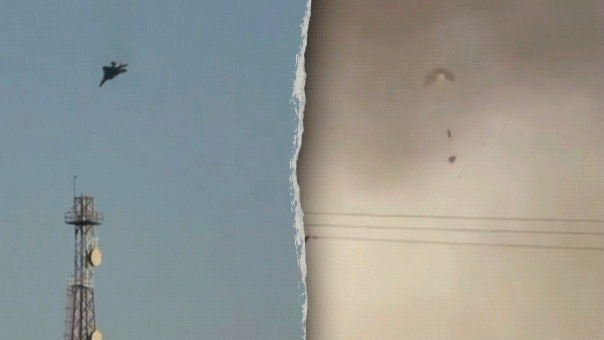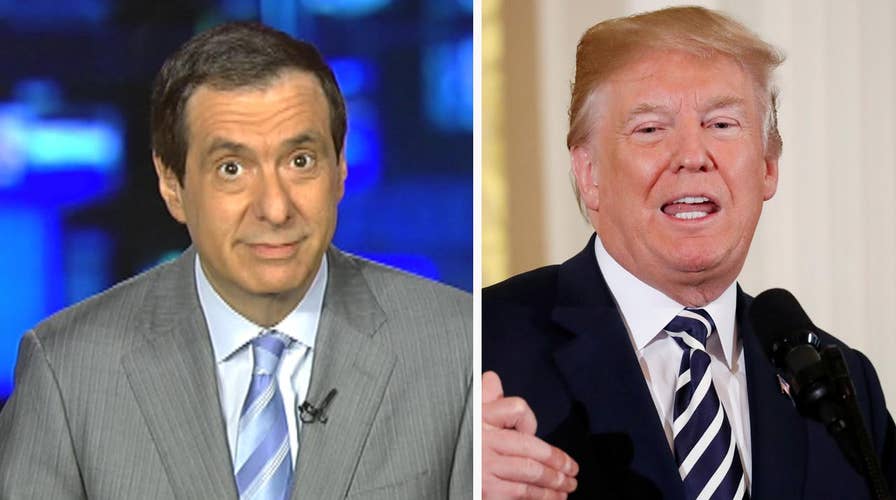Kurtz: Can Trump out-crazy an erratic dictator?
'MediaBuzz' host Howard Kurtz weighs in on how the media feared nuclear war over the previous global insults flung between Kim Jong Un and President Trump and why they now see some potential for peace and stability.
Hell hath officially frozen over.
At least, that's what I thought when I saw this headline in yesterday's New York Times: "President Trump a Nobel Laureate? It's a Possibility."
While a Nobel Prize "once seemed far-fetched," the paper allowed, the idea "has started to take root among his supporters" and even some Nobel experts and past winners.
This, of course, was published as Mike Pompeo was bringing back three American hostages—that's what I called them—from Pyongyang, who were met by the president at 3 a.m. at Andrews.
That resulted in an embarrassment for the Times, which a day earlier had run a piece with this headline: "At a Key Moment, Trump's Top Diplomat is Again Thousands of Miles Away."
The story pushed a narrative that Pompeo, like Rex Tillerson, was out of the loop on Iran, resulting in complaints from "perplexed European diplomats" (horrors) and State Department officials who were "momentarily speechless."
Even if Pompeo hadn’t brought home the prisoners, isn’t going to North Korea to lay the groundwork for the Trump/Kim meeting as important as being in Washington for an Iran decision that had already been made?
Trump, with the prisoners, praised Pompeo for a "fantastic job" and took a swipe at the Times story.
It's important to note, as so many journalists have, that Trump has a long way to go before he gets a Nobel. North Korea has freed prisoners before. Striking a verifiable deal for the rogue regime to start giving up its nuclear weapons is a very difficult task—and the president himself keeps saying it may not happen.
But things have obviously progressed since last year, when Trump was routinely denounced by the media for taunting "Little Rocket Man" and declaring that he could rain unprecedented destruction on the country.
Instead of following the cautious diplomatic approach that has yielded no progress with North Korea for a quarter-century, Trump used threats and bluster to bring Kim to the table.
The interim success of that strategy raises the question of whether Trump is not so much following the Great Man theory of history as the Crazy Man theory of history. That is, making an erratic enemy think you're capable of doing just about anything.
Axios quotes a source who has spoken to Trump as saying he loves that "no one knows what I'm going to do" in the summit meeting, especially the press.
"Kim Jong-un's entire lineage is having people think he might be crazy. Trump's like: 'You're crazy? How about this?'" a source said a while back, during the phase of Trump calling Kim 'Little Rocket Man' and taunting him by saying he has a bigger nuclear button."
Maybe the North Koreans are just giving the appearance of cooperation in an attempt to get the U.S. to ease sanctions in exchange for future promises of disarmament. No one knows right now.
But this feels like a moment, with both sides at least talking seriously about striking a deal and fueling the unlikely chatter about Trump and a peace prize.












































